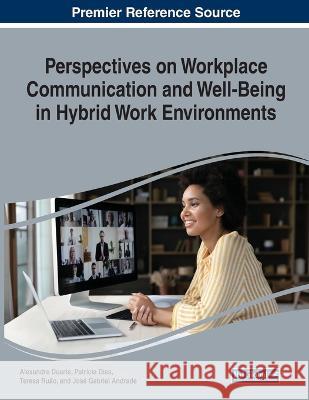Perspectives on Workplace Communication and Well-Being in Hybrid Work Environments » książka
Perspectives on Workplace Communication and Well-Being in Hybrid Work Environments
ISBN-13: 9781668473542 / Angielski
Perspectives on Workplace Communication and Well-Being in Hybrid Work Environments
ISBN-13: 9781668473542 / Angielski
(netto: 816,22 VAT: 5%)
Najniższa cena z 30 dni: 847,54
ok. 16-18 dni roboczych.
Darmowa dostawa!
The world has been facing the effects of the COVID-19 pandemic for over two years now. Daily life changed dramatically, and social distancing and remote working have become the new normal. Research about how people are facing these challenges points to common findings and concerns. The pandemic has enhanced inequalities, taken a toll on mental health, and increased the use of digital technologies. Many workers are suffering from "digital fatigue" and struggle to self-regulate their life/work balance, as the permanent digital connection to work is reinforced and they struggle with the blurred borders concerning privacy, leisure, and rest. In this context, it is vital to research how organizations have reinvented themselves to cope with the COVID-19 pandemic and understand which of the reactive workplace communication practices and improvised solutions were considered advantageous. Perspectives on Workplace Communication and Well-Being in Hybrid Work Environments presents different approaches that explore the impact of the COVID-19 pandemic on workplace communication, focusing specifically on internal communication, mapping new communication practices, and assessing their consequences, namely the well-being of the workers who are coping with these changes. The book combines a scientific exploration of these ongoing changes as we transition to a post-COVID-19 world with a collection of examples and best practices that help organizations in supporting their members through these transformations and in nurturing their well-being. Covering topics such as cross-department process dependencies, hybrid work environments, and wellbeing strategies, this premier reference source is a vital resource for business leaders and managers, IT managers, human resource professionals, students and educators of higher education, librarians, researchers, and academicians.











